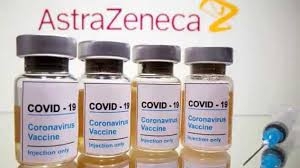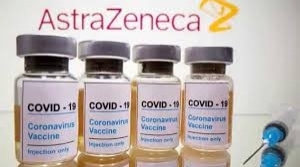AstraZeneca Vaccine Could Substantially Cut Spread, Study Shows
Results that show the Oxford-AstraZeneca vaccine could substantially cut the spread of COVID-19 have been termed “absolutely superb” by Health Secretary Matt Hancock.
Hancock said the vaccine not only prevents symptomatic infections but also appears to reduce transmission of the virus. He added that effective vaccines are the world’s “way out of this pandemic".
Coronavirus vaccine trials have hitherto looked at prevention of symptomatic cases of the infection. Now, for the first time, the data suggests that vaccines could also prevent people from passing the infection to others.
Helen Fletcher, Professor of Immunology at the London School of Hygiene and Tropical Medicine, said the study results ”suggest a possibility that the vaccine could have an impact on transmission, but further follow-up would be needed to confirm this."
As well as showing a positive effect on transmission, the study by the University of Oxford found the vaccine offered 76% protection against coronavirus for about three months.
If the second dose is taken, that protection rises to 82%, the study found.
The findings suggest that figuring out the right timing between doses is more important than focusing on the dosing level.
“We suggest that it is the dosing interval and not the dosing level which has the greatest impact on the efficacy of the vaccine. This is in line with previous research supporting greater efficacy with longer prime-boost intervals done with other vaccines such as influenza, ebola and malaria”, reads the statement by University of Oxford.
“The study by the University of Oxford, where the vaccine was developed, measured the impact on transmission by testing for asymptomatic infections, swabbing participants every week, in addition to recording when anyone fell ill with Covid-19”, writes the BBC.
The results of the study have not yet been formally published.
Latest government figures show the number of vaccinated persons in the UK has now passed 10 million.
The study results instill hope amid rising anguish about whether the different vaccines will prove strong enough to protect against COVID-19.












